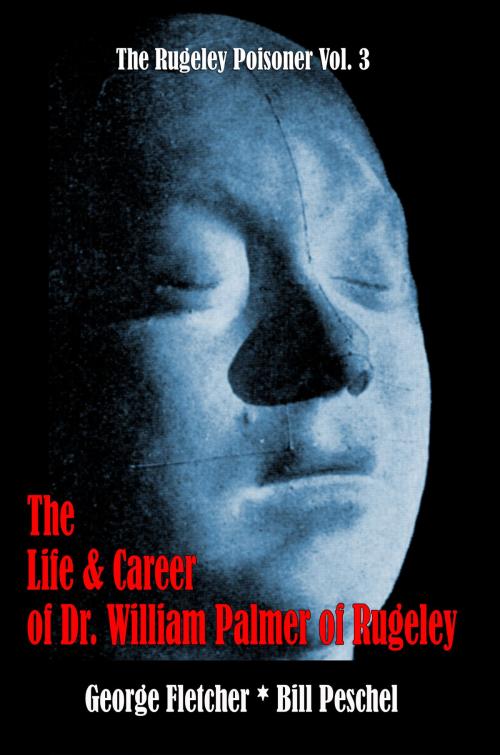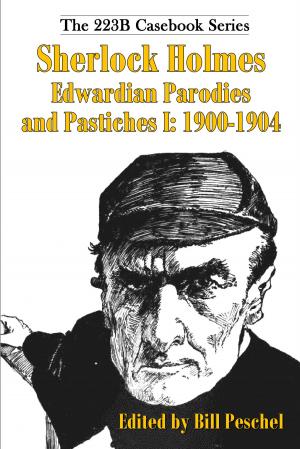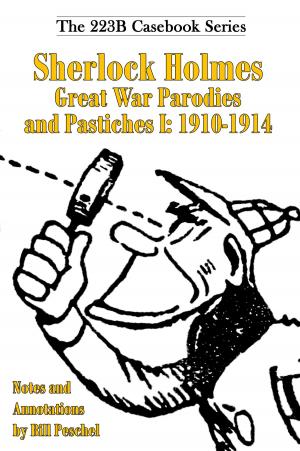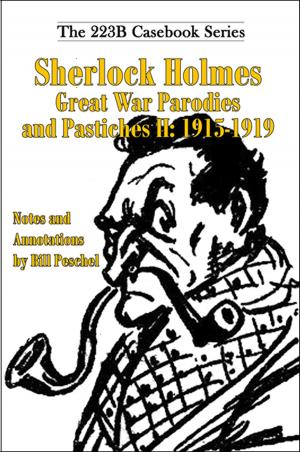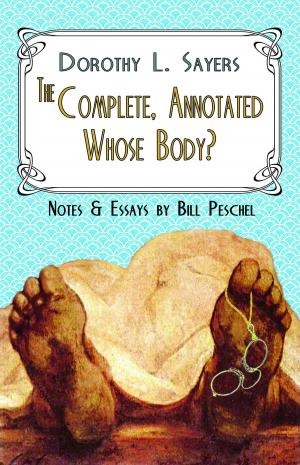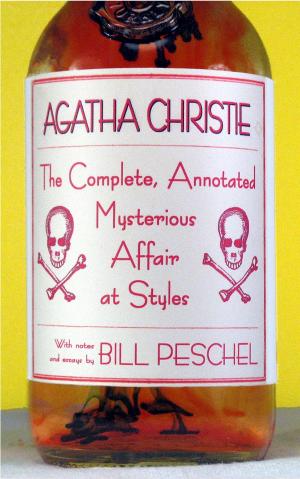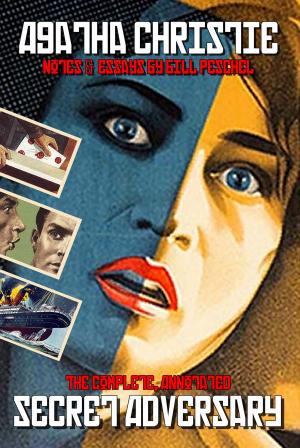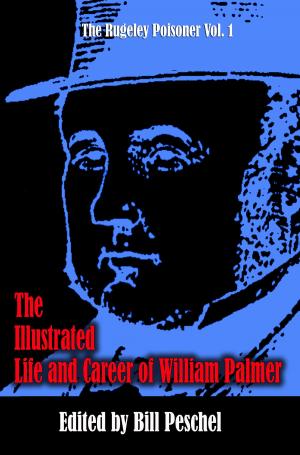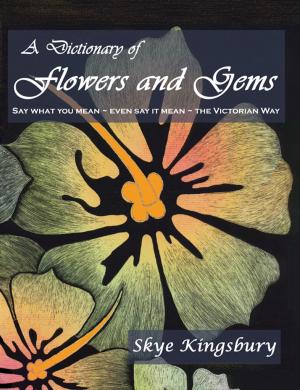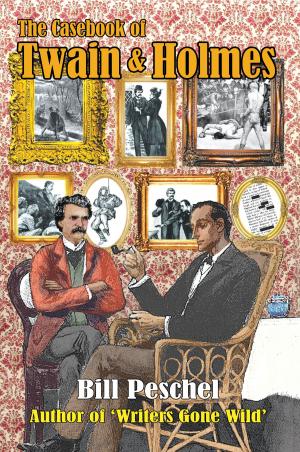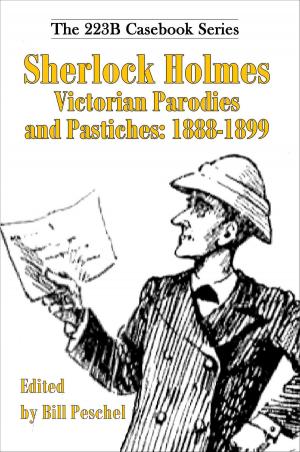The Life and Career of William Palmer
Nonfiction, Social & Cultural Studies, True Crime, Murder, History, British, Biography & Memoir| Author: | George Fletcher, Bill Peschel | ISBN: | 1230000249674 |
| Publisher: | Peschel Press | Publication: | June 30, 2014 |
| Imprint: | Language: | English |
| Author: | George Fletcher, Bill Peschel |
| ISBN: | 1230000249674 |
| Publisher: | Peschel Press |
| Publication: | June 30, 2014 |
| Imprint: | |
| Language: | English |
The Bad Boy of Rugeley
In 1856, Dr. William Palmer made history when he was hanged for poisoning his best friend. It was not only the first trial involving strychnine, but the first that was moved because of the extensive publicity it received in the new penny newspapers that were exploding in popularity.
“[The Palmer case] shows me that atrocious wickedness is consistent with good education, perfect sanity, and everything, in a word, which deprives men of all excuse for crime. If he had been the lowest and most ignorant ruffian that ever sprang from a long line of criminal ancestors, he could not have been worse than he was.”
In 1925, George Fletcher published his lifetime’s research on the case. Drawing on his family’s ties to the area, he visited Staffordshire repeatedly over several decades. He interviewed many of the people connected with the case and collected their stories and observations. His biography of Palmer was the first to feature new information about him, his murders, and the controversies surrounding his trial.
“We were at Rugeley Grammar School together for three years. He was a thoroughly bad boy, and did not mind how he cheated, He would get other lads to write his thesis and many of his exercises. He was not cruel to small boys, but very cruel to animals and sneaking in every detail.”
This new edition of “The Life and Career of Dr. Palmer of Rugeley” brings Fletcher’s biography back into print with the original illustrations and photographs. It has been carefully annotated to flesh out the story and explain the social and cultural references unfamiliar to today’s readers.
Fletcher’s biography is part of “The Rugeley Poisoner” trilogy that includes two books published in 1856: “The Illustrated Life and Career of William Palmer” and “The Illustrated Times Trial of William Palmer.” With these three books, true-crime fans can experience early Victorian Britain where money was king, reputations ruled, and where evil lurked in the heart of a benign doctor.
About the Authors
George Fletcher (1848-1933) was born in Bromsgrove, Worcestershire. He was educated at Bromsgrove School and earned an MA and an MD at Clare College, Cambridge. He was a member of the Royal College of Surgeons and the Worshipful Society of Apothecaries. He worked as a surgeon at St. Thomas's Hospital, London, and was visiting Magistrate at Pentonville Prison.
Bill Peschel is a recovering journalist who shares a Pulitzer Prize with the staff of The Patriot-News in Harrisburg, Pa. He also is mystery fan who has run the Wimsey Annotations at www.planetpeschel.com for nearly two decades. He is the author of the 223B series of Sherlock Holmes parodies and pastiches, The Complete, Annotated Mysterious Affair at Styles, The Complete, Annotated Secret Adversary and The Complete, Annotated Whose Body? as well as Writers Gone Wild (Penguin Books). He lives in Hershey, where the air really does smell like chocolate.
The Bad Boy of Rugeley
In 1856, Dr. William Palmer made history when he was hanged for poisoning his best friend. It was not only the first trial involving strychnine, but the first that was moved because of the extensive publicity it received in the new penny newspapers that were exploding in popularity.
“[The Palmer case] shows me that atrocious wickedness is consistent with good education, perfect sanity, and everything, in a word, which deprives men of all excuse for crime. If he had been the lowest and most ignorant ruffian that ever sprang from a long line of criminal ancestors, he could not have been worse than he was.”
In 1925, George Fletcher published his lifetime’s research on the case. Drawing on his family’s ties to the area, he visited Staffordshire repeatedly over several decades. He interviewed many of the people connected with the case and collected their stories and observations. His biography of Palmer was the first to feature new information about him, his murders, and the controversies surrounding his trial.
“We were at Rugeley Grammar School together for three years. He was a thoroughly bad boy, and did not mind how he cheated, He would get other lads to write his thesis and many of his exercises. He was not cruel to small boys, but very cruel to animals and sneaking in every detail.”
This new edition of “The Life and Career of Dr. Palmer of Rugeley” brings Fletcher’s biography back into print with the original illustrations and photographs. It has been carefully annotated to flesh out the story and explain the social and cultural references unfamiliar to today’s readers.
Fletcher’s biography is part of “The Rugeley Poisoner” trilogy that includes two books published in 1856: “The Illustrated Life and Career of William Palmer” and “The Illustrated Times Trial of William Palmer.” With these three books, true-crime fans can experience early Victorian Britain where money was king, reputations ruled, and where evil lurked in the heart of a benign doctor.
About the Authors
George Fletcher (1848-1933) was born in Bromsgrove, Worcestershire. He was educated at Bromsgrove School and earned an MA and an MD at Clare College, Cambridge. He was a member of the Royal College of Surgeons and the Worshipful Society of Apothecaries. He worked as a surgeon at St. Thomas's Hospital, London, and was visiting Magistrate at Pentonville Prison.
Bill Peschel is a recovering journalist who shares a Pulitzer Prize with the staff of The Patriot-News in Harrisburg, Pa. He also is mystery fan who has run the Wimsey Annotations at www.planetpeschel.com for nearly two decades. He is the author of the 223B series of Sherlock Holmes parodies and pastiches, The Complete, Annotated Mysterious Affair at Styles, The Complete, Annotated Secret Adversary and The Complete, Annotated Whose Body? as well as Writers Gone Wild (Penguin Books). He lives in Hershey, where the air really does smell like chocolate.
